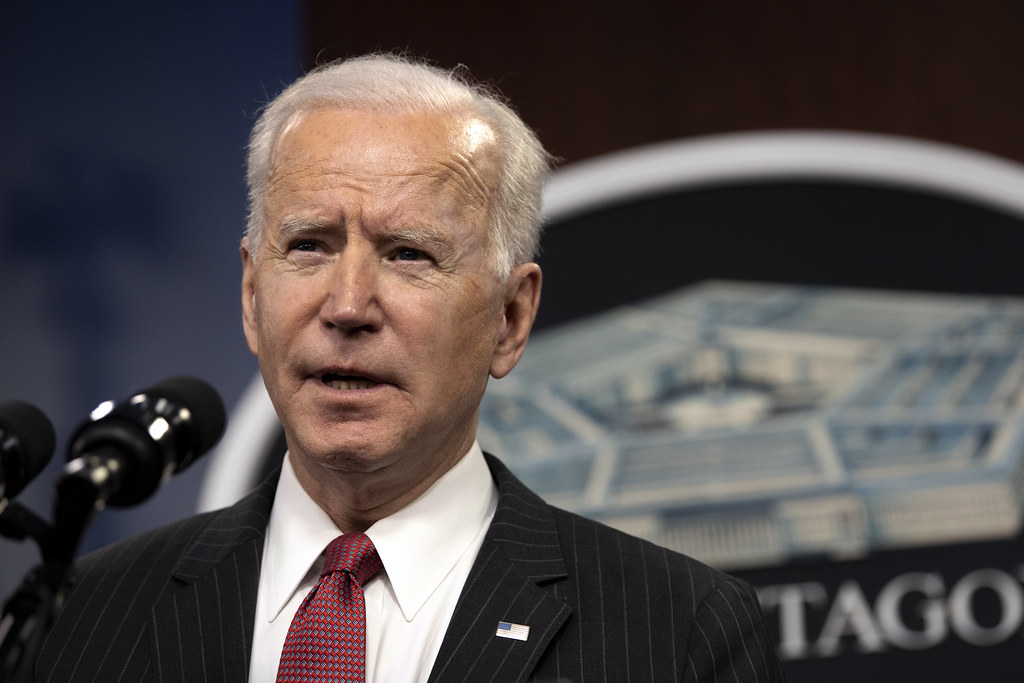All Biden’s promises on US LNG to Europe

Biden said US companies could divert LNG destined for Japan to Europe. It is a plan that has already been tested in recent months, but it is not certain that it will work. Here because. Facts, numbers and insights
Yesterday, the president of the United States, Joe Biden, in commenting on the request to Congress to approve a new 33 billion dollar aid plan (mainly military) for Ukraine, released some statements on energy relations between the European Union and the Russia, its main gas supplier.
BIDEN: RUSSIA USES ENERGY AS A WEAPON
Referring to Moscow's threats to cut off fuel flows to Europe ( it has already blocked them in Poland and Bulgaria ), Biden repeated a classic American position: that Russia is not a reliable partner and that it uses energy as a 'weapon, to put pressure on its customers and obtain political advantages (for example the rapid authorization of the Nord Stream 2 gas pipeline with Germany).
"These actions," he said, "demonstrate that energy is not just a commodity that Russia sells to help meet the needs of other countries, but a weapon it will use to take sides against those who oppose its aggression. ". Brussels, in fact, is thinking of imposing a ban on energy imports from Moscow (so far it has limited itself to coal ), but several member countries of the Union are against it due to the extreme dependence on Russian gas, impossible to replace entirely immediately. .
BIDEN'S PROMISE ON AMERICAN LNG
In a later passage, Biden states that the United States "is working with other nations – such as [South Korea, ed ], Japan, Qatar and others – to support our effort to help European allies threatened by Russia" and provide for their energy needs in the event of a supply interruption.
When, at the end of March, the United States reached an agreement with the European Union to supply it with 15 billion cubic meters of liquefied gas (LNG) in 2022, it had precisely mentioned generic "international partners" that would help them honor the pact. . Despite being the largest producers and exporters in the world, the United States' LNG export capacity is virtually saturated and it takes time and money to expand.
After that, responding to a reporter's question asking for more information on American moves to help Poland and Bulgaria, Biden said that "we have been working with our allies, from Japan onwards, to say that we could hijack our sales of the natural gas that we are sending to those countries and diverting it directly to Poland and Bulgaria ”. "It's the best I can tell you at the moment," concluded the American president, answering the reporter.
AN IDEA ALREADY EXPERIENCED
This is not a new idea. Already last February, even before the war in Ukraine began, the United States had started discussions with Qatar and Japan on the possibility of sending LNG supplies to the European Union, worried that, in the event of a conflict, the supplies of Russian gas could decrease either as a result of the fighting or by the will of Moscow.
The plan didn't really work at the time. Qatar, like America, had an export capacity problem already committed. While Japan (which is not, however, a producer but even the second largest buyer of LNG in the world) did send loads to the Old Continent, but they were already foreseen by a joint venture with the French company EDF: the country has its own demand internal energy needs to be satisfied and does not have much room for maneuver.
A CONTEXT PROBLEM
The feasibility of Biden's proposal is also uncertain because in the United States the will and political direction cannot completely impose themselves on the logic of the market and on private initiative, which is aimed at where the convenience is greater. The White House, in other words, cannot force companies to sell in one country rather than another: if it does, their shareholders – interested in profit, not geopolitics – may be harmed and may begin to consider the United States a country unsuitable for doing business.
WHERE THE MARKET GOES
American LNG exporters, it was said, sell where it suits them best: that is, in those markets where gas prices are higher and profits, consequently, as well. Usually the most profitable market is the Asian one, where some of the biggest LNG buyers are located: China, Japan and South Korea.
However, the balance is changing – already in December several American LNG carriers bound for Asia had changed course towards Europe; more recently China has done so too – but it is too early to tell whether this is a structural shift or just a temporary one. Goldman Sachs, however, thinks Europe will prove to be a more attractive destination for LNG cargoes than Asia for at least a year given higher regional gas prices. Asian LNG demand is currently sluggish as inventories are at high levels. In China, the largest importer of the fuel, anti-coronavirus restrictions are reducing demand for it. But things could change with the arrival of the next cold season: at that point, a competition between Europe and Asia could be triggered to grab the (limited) supplies of LNG, which will increase the cost.
In the meantime, however, record imports of LNG were recorded in the markets of north-western Europe in April: suppliers even started offering discounted prices to secure a place in European terminals, which do not have sufficient regasification capacity to handle large volumes.
This is a machine translation from Italian language of a post published on Start Magazine at the URL https://www.startmag.it/energia/joe-biden-gnl-polonia-bulgaria/ on Fri, 29 Apr 2022 10:07:28 +0000.
